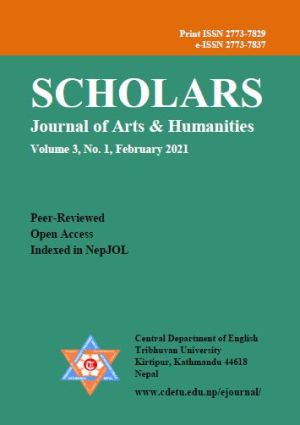Magic Realism as Rewriting Postcolonial Identity: A Study of Rushdie’s Midnight’s Children
DOI:
https://doi.org/10.3126/sjah.v3i1.35376Keywords:
Magic realism, postcolonial identity, voices, marginAbstract
Magic realism as a literary narrative mode has been used by different critics and writers in their fictional works. The majority of the magic realist narrative is set in a postcolonial context and written from the perspective of the politically oppressed group. Magic realism, by giving the marginalized and the oppressed a voice, allows them to tell their own story, to reinterpret the established version of history written from the dominant perspective and to create their own version of history. This innovative narrative mode in its opposition of the notion of absolute history emphasizes the possibility of simultaneous existence of many truths at the same time. In this paper, the researcher, in efforts to unfold conditions culturally marginalized, explores the relevance of alternative sense of reality to reinterpret the official version of colonial history in Salman Rushdie’s Midnight’s Children from the perspective of magic realism. As a methodological approach to respond to the fiction text, magic realism endows reinterpretation and reconsideration of the official colonial history in reaffirmation of identity of the culturally marginalized people with diverse voices.
Downloads
Downloads
Published
How to Cite
Issue
Section
License
© Central Department of English, Tribhuvan University and Authors




